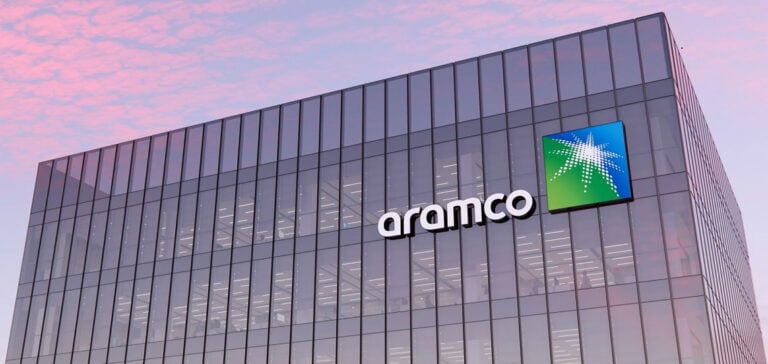Saudi oil company Aramco recently published its financial results for 2023, revealing a significant drop in profits. The figures show a 24.7% decline, with net profits falling to 454.7 billion Saudi riyals ($121.25 billion), compared with the previous year’s record of 604.01 billion riyals ($161.07 billion). This decline is mainly due to lower crude oil prices, combined with weaker margins in refining and chemicals. Despite this decline, Aramco emphasizes the strength of its financial results, ranking them as the second highest in the company’s history.
This financial situation is partly explained by the turbulence in the global oil market. After the surge in prices in 2022 due to Russia’s invasion of Ukraine and the post-Covid recovery, tariffs regressed significantly last year, settling at around $85 a barrel. This change reflects growing concerns about a potential global recession that could reduce demand for oil.
Aramco’s resilience in the face of economic challenges
Aramco, led by CEO Amin Nasser, has nevertheless managed to navigate these tumultuous waters by emphasizing the company’s resilience and adaptability. Nasser stressed that, despite the global economic difficulties, Aramco has maintained robust cash flow and a high level of profitability. These results demonstrate the effectiveness of our corporate strategy and Aramco’s ability to adjust rapidly to a constantly changing environment.
Aramco Strategy and Outlook
Aramco’s future seems to focus on two main areas: diversification of its activities and the transition to more sustainable energy. Against this backdrop, the company has announced significant changes to its investment strategy, particularly in natural gas and renewable energies.
The company’s decision not to increase its oil production capacity beyond current levels reflects a cautious approach, in line with global market uncertainties. In addition, Aramco plans to reduce its capital expenditure by $40 billion over the next few years, a move that reflects its desire to consolidate its financial structure while adapting to fluctuating market conditions.
In a broader context, these measures are part of Saudi Arabia’s Vision 2030 program, steered by Crown Prince Mohammed ben Salmane. This program aims to reduce the kingdom’s dependence on oil and diversify its economy, notably through the development of sectors such as tourism, sport and business. Aramco’s strategy, aligned with these objectives, reflects a broader ambition to transition to an economy less dependent on hydrocarbons.
Aramco’s commitment to Diversification and Sustainability
In addition, Aramco underlined its commitment to sustainability by announcing its intention to achieve zero net carbon emissions by 2050. This approach complements Vision 2030 and illustrates the role the company intends to play in the fight against climate change. However, these announcements have been greeted with some skepticism by environmentalists, who point to the scale of the challenges involved in transforming such an oil-dependent economy.
Aramco’s financial results for 2023 highlight the challenges and opportunities facing the global oil industry. Despite a significant fall in profits, the company has demonstrated a remarkable ability to adapt to market fluctuations while positioning itself for a more sustainable and diversified future. Aramco’s strategy, in line with Saudi Arabia’s long-term development objectives, points in a clear direction towards transformation and sector innovation.





















